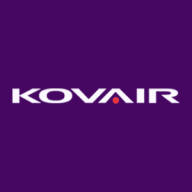

Teradata and Kovair Data Lake compete in the data management category. Teradata holds the upper hand for customers focused on support and lower pricing, while Kovair Data Lake stands out with its feature set for dynamic environments.
Features: Teradata provides comprehensive analytics capabilities, integration options, and high scalability, making it suitable for complex query support. Kovair Data Lake is recognized for its extensive data management options, efficient data ingestion, and dynamic data modeling, allowing greater flexibility in rapidly changing environments compared to Teradata's more fixed architecture.
Ease of Deployment and Customer Service: Teradata is favored for its straightforward deployment, supported by reliable customer service that ensures smooth implementation. Kovair Data Lake, though having a more complex deployment model, offers a customized approach for large-scale, tailor-made data solutions, balancing Teradata's simplicity with its own adaptability.
Pricing and ROI: Teradata provides an attractive upfront cost option, appealing to businesses under budget constraints, with steady ROI from effective long-term data management. Kovair Data Lake, despite its higher setup cost and greater learning curve, promises significant ROI due to advanced features and scalability, adding value in dynamic environments.
| Product | Market Share (%) |
|---|---|
| Teradata | 12.1% |
| Kovair Data Lake | 1.0% |
| Other | 86.9% |


| Company Size | Count |
|---|---|
| Small Business | 26 |
| Midsize Enterprise | 12 |
| Large Enterprise | 50 |
Kovair Data Lake is a central database that comes with SQL server support. This makes it capable of storing data from multiple projects residing in diversified tools used by an organization. Based on organizational needs, the stored data is then segregated by departments or business units. Kovair Data Lake also comes with a very intuitive UI interface for managing and monitoring of the Data Lake.
Many organizations use enterprise data warehouses to meet both operational and reporting needs. However, apart from offering a storage and management facilities, there are certain limitations that organizations continue to face. These are –
- Real-time synchronization of data within a centralized data storage
- Traceability and governance of stored data
- Low-cost storage infrastructure compared to Big Data or Data Warehouse
- Handling of low volume but highly diversified data
- Prescriptive analytics that will aid in taking data-driven decisions and on-time service delivery
Kovair has been a market leader in the domain of data integration with a marquee of clients from networking, semiconductor, telecom, manufacturing, banking and finance. Over the recent years, it has witnessed a shift in focus for organizations using multiple tools and different teams. While Kovair Omnibus provides the support for features like traceability, cross tool reporting, and task-based workflow that is simply not enough! Customers today are looking for central data store where data coming from different tools used in an organization could be accumulated in its native format.
Data Lake presents a low-cost alternative to exploding storage and processing costs of traditional warehouses.
While traditional data warehouses store data in hierarchical format. Data Lake offers a central database repository with a flat architecture for storing the data. This protects the data from unwanted manipulation, enabling businesses to take informed decisions accurately and building a better business-customer relationship.
- Large Data Repository for Central Administration
- Tool Extractors with WS/SQL Communication Support
- Web-based Data Lake Portal
More details - https://www.kovair.com/data-lake/
Teradata is a powerful tool for handling substantial data volumes with its parallel processing architecture, supporting both cloud and on-premise environments efficiently. It offers impressive capabilities for fast query processing, data integration, and real-time reporting, making it suitable for diverse industrial applications.
Known for its robust parallel processing capabilities, Teradata effectively manages large datasets and provides adaptable deployment across cloud and on-premise setups. It enhances performance and scalability with features like advanced query tuning, workload management, and strong security. Users appreciate its ease of use and automation features which support real-time data reporting. The optimizer and intelligent partitioning help improve query speed and efficiency, while multi-temperature data management optimizes data handling.
What are the key features of Teradata?In the finance, retail, and government sectors, Teradata is employed for data warehousing, business intelligence, and analytical processing. It handles vast datasets for activities like customer behavior modeling and enterprise data integration. Supporting efficient reporting and analytics, Teradata enhances data storage and processing, whether deployed on-premise or on cloud platforms.
We monitor all Data Warehouse reviews to prevent fraudulent reviews and keep review quality high. We do not post reviews by company employees or direct competitors. We validate each review for authenticity via cross-reference with LinkedIn, and personal follow-up with the reviewer when necessary.